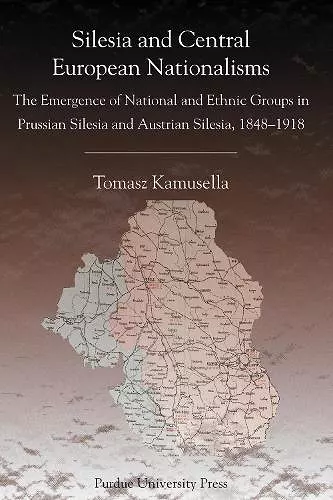Silesia and Central European Nationalism
The Emergence of National and Ethnic Groups in Prussian Silesia and Austrian Silesia, 1848-1918
Format:Paperback
Publisher:Purdue University Press
Published:30th Sep '06
Currently unavailable, and unfortunately no date known when it will be back

The work analyzes the problems of nation building in the Central European region of Silesia during the years 1848-1918, which was influenced by Western European movements, especially German nationalism. The German ethnic model of nation building steeped in language and culture had been replicated in the case of Polish and Czech nationalisms. Silesia became a focal point as an area that was sought after by all three nations. Subsequent historiographies have treated Silesia and its population as a part of the three national histories. However, in reality, the German/Germanic-speaking Protestants began to identify themselves as Germans, but the Slavic-speaking Catholic Silesians did not fully recognize any of the three national influences and clung to their religious identity. Others developed specific ethnic identities connected to the ethnic groups of the Szlonzoks, the Slunzaks and the Morawecs. The groups remained prominent until the division of Silesia among Czechoslovakia, Germany, and Poland in 1919-22.
ISBN: 9781557533715
Dimensions: unknown
Weight: 625g
386 pages